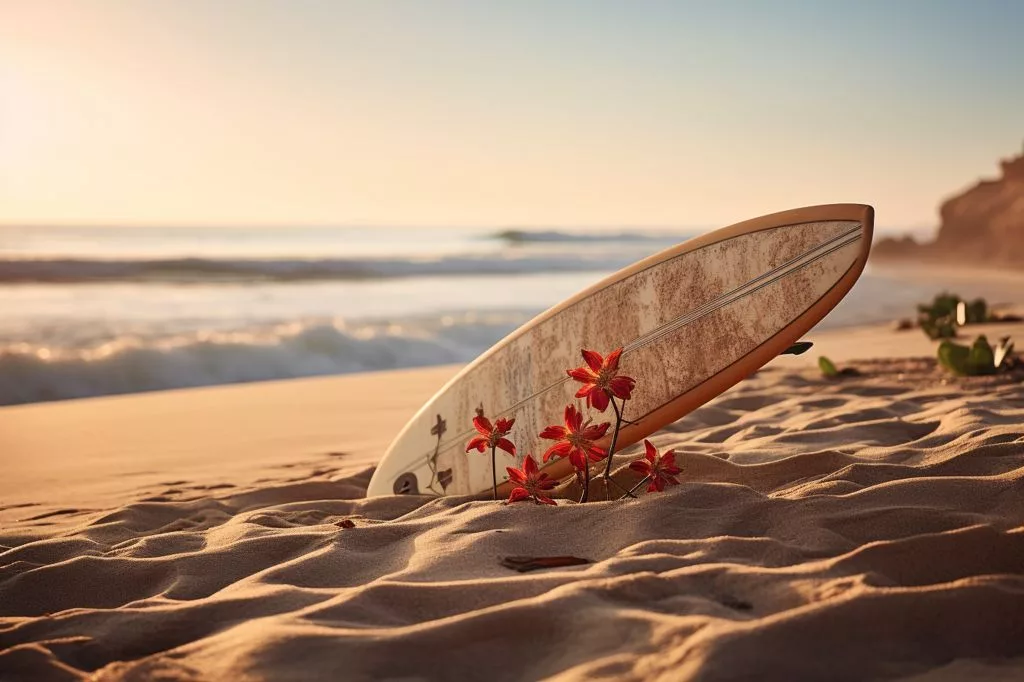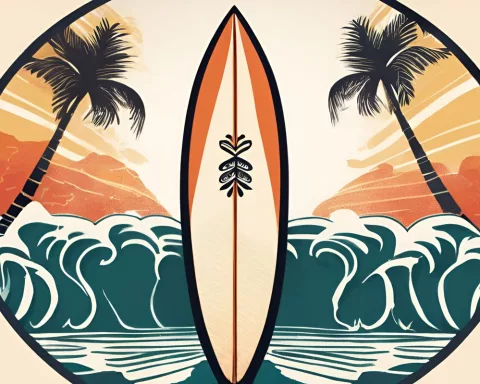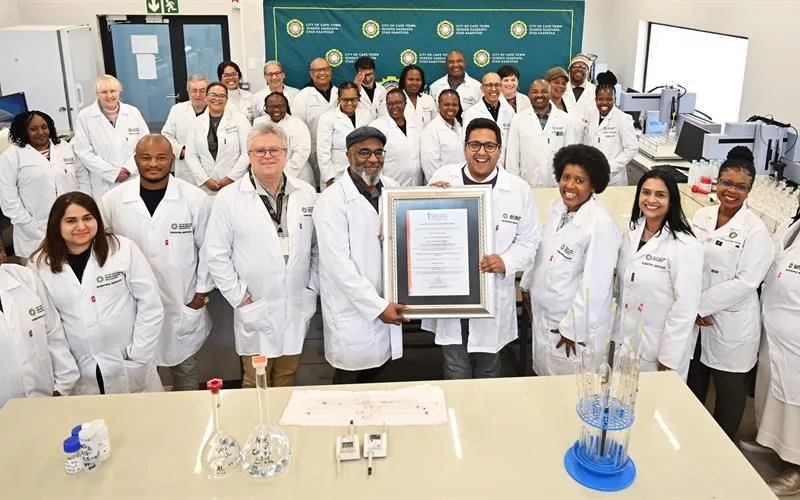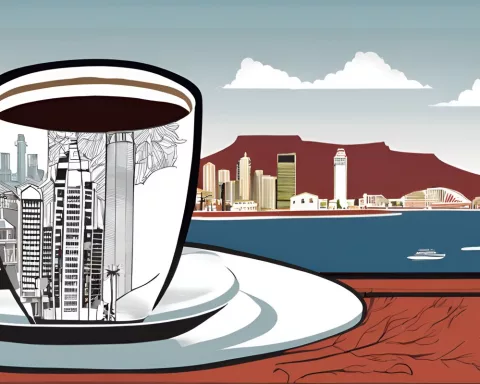Surfing is no longer just for young, beach-blonde individuals. The community has become more diverse and inclusive, with people of different ages, races, and abilities coming together to ride waves. Muizenberg Beach in Cape Town is a popular spot for beginners, with Roxy Davis’ Surf Emporium providing a safe and fun environment for learners. Surfing is a sport for all, with organizations like Sisonke Surf Club and Surf Outreach mentoring aspiring surfers from diverse backgrounds. As the sport continues to grow, the new face of surfing is one of inclusivity, diversity, and camaraderie.
Surfing, which was once linked with young beach-blonde hair and sun-kissed skin, now proudly has a diverse community of enthusiasts, including people of different age groups, races, and abilities. The days when surfing was an exclusive club are long gone. Nowadays, beginner and expert surfers come together to share the thrilling experience of riding waves. This inclusive atmosphere is especially present in the surfing community at Muizenberg Beach, Cape Town – the birthplace of South African surfing, and one of the world’s best beaches for beginners.
Muizenberg Beach: A Surfing Haven
[Muizenberg Beach](https://capetown.today/reviving-muizenbergs-beach-hutshttps-capetown-today-reinvigorating-the-iconic-muizenberg-beach-huts-a-celebration-of-heritage-and-community-partnership-a-tribute-to-cape-towns-tourism-herit/) has been a paradise for surfers since 1910. Its gentle waves, absence of rocks, and lack of strong currents make it the ideal spot for new surfers to learn. Roxy Davis, a nine-time South African Surfing Champion, established her surf school at Muizenberg Beach in 2002. Initially an informal gathering of friends, the school has since grown to accommodate over 200 learners, thanks to the surf community’s popularity and the movie Blue Crush.
At Roxy Davis’ Surf Emporium, the focus is on creating a fun and safe environment for all learners. Surf coaches are handpicked based on Roxy’s personal experiences and their ability to connect with learners. However, even the best coaching cannot guarantee immediate success. As any new surfer can confirm, learning to ride waves requires persistence and determination.
Surfing: A Sport for All
Surfing is a sport that heavily depends on muscle memory, necessitating continuous practice to improve. Among the students learning at Muizenberg is 75-year-old physiotherapist Pam Hansford, a former employee of the Roxy Davis Foundation. Despite breaking her back while bodyboarding, Pam has since become an advocate for surf therapy, showing that age and physical limitations cannot prevent someone from learning and enjoying the sport.
The inclusive spirit goes beyond Muizenberg Beach’s shores. In Durban, the Sisonke Surf Club, founded by surfer and lifeguard Alvin Mtatchi in 2013, mentors aspiring surfers from diverse backgrounds, giving them the chance to change their lives and future. Similarly, Surf Outreach and Waves for Change in Cape Town also aim to make a difference in young surfers’ lives. For these organizations, sharing their passion for surfing is a personal mission.
As more people with different ages and abilities are attracted to the sport, the surfing community continues to grow. Surf schools in various locations, such as Durban and Jeffrey’s Bay, accommodate the increasing interest, offering lessons and guided surf trips for beginners and families. Both Gary’s Surf School and Surf Emporium also provide holiday surf camps for children, ensuring the sport remains accessible to everyone.
Inspiring Stories of Inclusivity
The stories of those who have embraced surfing demonstrate the sport’s appeal and inclusive nature. Sindi Kalumba, a surf coach who has been surfing for six years, considers Muizenberg her “comfortable space.” Seth De Boer, a part-time surf school employee and volunteer at the National Sea Rescue Institute, overcame a non-fatal drowning experience at 14 to become a skilled surfer and energetic leader. Matt Pallet, a professional surfer who once feared the ocean, has since surfed in unconventional locations like Gambia and the Cape Verde Islands.
In summary, the new face of surfing is one of inclusivity, diversity, and camaraderie. The sport continues to grow and evolve, inviting people of all ages, backgrounds, and experiences to partake in the exhilarating journey of riding waves. The once-exclusive club is now a thriving community, united by a shared love for surfing and the pursuit of pleasure it represents.
1. How has the surfing community become more diverse and inclusive?
Surfing is no longer just for young, beach-blonde individuals. The community has become more diverse and inclusive, with people of different ages, races, and abilities coming together to ride waves.
2. Which beach in Cape Town is popular for beginners?
Muizenberg Beach in Cape Town is a popular spot for beginners, with Roxy Davis’ Surf Emporium providing a safe and fun environment for learners.
3. Who is Roxy Davis and what is her role in the surfing community?
Roxy Davis, a nine-time South African Surfing Champion, established her surf school at Muizenberg Beach in 2002. Initially an informal gathering of friends, the school has since grown to accommodate over 200 learners, thanks to the surf community’s popularity and the movie Blue Crush.
4. What is surf therapy and who is an advocate for it?
Surf therapy is a form of therapy that involves using surfing as a means to improve mental and physical health. Among the students learning at Muizenberg is 75-year-old physiotherapist Pam Hansford, a former employee of the Roxy Davis Foundation. Despite breaking her back while bodyboarding, Pam has since become an advocate for surf therapy, showing that age and physical limitations cannot prevent someone from learning and enjoying the sport.
5. What do organizations like Sisonke Surf Club and Surf Outreach do?
In Durban, the Sisonke Surf Club, founded by surfer and lifeguard Alvin Mtatchi in 2013, mentors aspiring surfers from diverse backgrounds, giving them the chance to change their lives and future. Similarly, Surf Outreach and Waves for Change in Cape Town also aim to make a difference in young surfers’ lives.
6. What kind of lessons do surf schools offer?
Surf schools in various locations, such as Durban and Jeffrey’s Bay, accommodate the increasing interest, offering lessons and guided surf trips for beginners and families. Both Gary’s Surf School and Surf Emporium also provide holiday surf camps for children, ensuring the sport remains accessible to everyone.
7. Can anyone learn to surf?
Learning to ride waves requires persistence and determination. However, the sport heavily depends on muscle memory, necessitating continuous practice to improve. The inclusive spirit of the surfing community welcomes people of all ages, backgrounds, and experiences to partake in the exhilarating journey of riding waves.
8. Can surfing have a positive impact on mental and physical health?
Surf therapy is a form of therapy that involves using surfing as a means to improve mental and physical health. Organizations like Waves for Change and individuals like Pam Hansford have shown the positive impact that surfing can have on one’s well-being.












